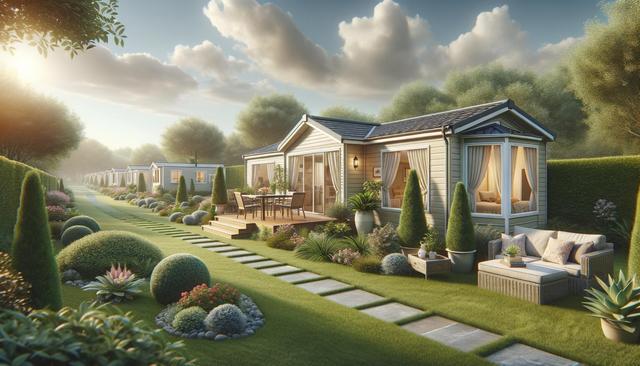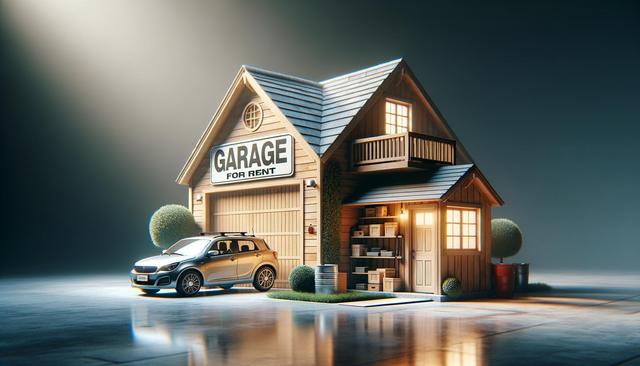Understanding Mobile Homes for Seniors
Mobile homes, also referred to as manufactured homes, present a flexible housing solution for seniors seeking affordability and comfort. These homes are built off-site and transported to a residential location, often within a designated mobile home park or community. For older adults, these housing options can offer a mix of independence and community living, making them attractive for both retirees and those looking to downsize. Mobile home communities designed for seniors often include age restrictions, typically catering to individuals aged 55 and older, which helps create a quieter and more relaxed atmosphere.
Many seniors appreciate the simplified maintenance responsibilities and the ability to live in a single-level residence. These homes vary in size, ranging from compact single-wide units to more spacious double-wide or even triple-wide options. The choice often depends on individual needs, lifestyle preferences, and available budget. Accessibility features such as step-free entrances, wider hallways, and adapted bathrooms can also be incorporated to enhance comfort and safety.
Age-Restricted vs. All-Age Communities
One of the first decisions seniors face when considering a mobile home is choosing between an age-restricted or an all-age community. Age-restricted communities are specifically tailored for older adults and often come with amenities that cater to a senior lifestyle. These may include:
- Clubhouses for social gatherings
- Walking trails and landscaped common areas
- Fitness centers with low-impact equipment
- Organized community events
All-age communities, on the other hand, welcome residents of all generations. While they may offer fewer senior-specific amenities, they can be a good choice for seniors who want to live near younger family members or enjoy a more diverse social environment. The choice between these two types of communities usually depends on lifestyle preferences and desired social interactions.
In either case, it’s important to review community rules, monthly fees, and restrictions before making a commitment. Some communities have homeowners’ associations with guidelines on everything from home exterior appearance to pet policies, which may influence your decision.
Location and Climate Considerations
Location is a key factor when selecting a senior mobile home community. Many retirees gravitate toward warmer climates, where mild winters make year-round outdoor activities more accessible. States in the southern and western regions tend to have a higher concentration of senior-focused mobile home communities. However, preferences vary greatly, and some seniors may prioritize proximity to family, healthcare services, or familiar surroundings over climate.
When evaluating different locations, consider the following:
- Availability of healthcare facilities nearby
- Public transportation options
- Cost of living in the area
- Local tax policies affecting retirees
Additionally, regional building codes and mobile home park regulations may differ depending on the state or municipality. For example, areas prone to extreme weather may require homes to meet specific safety standards. Doing thorough research and consulting with local housing authorities can help ensure a well-informed decision that aligns with long-term needs.
Financial Aspects and Affordability
Financial considerations play a substantial role in choosing a senior mobile home. These homes often cost less upfront than traditional housing options, making them an appealing choice for those on a fixed income. However, there are ongoing expenses to be mindful of, such as lot rent, utilities, maintenance, and insurance. Some seniors opt to purchase the mobile home but lease the land it sits on, while others may buy both the home and the land, which alters the financial dynamic significantly.
Here’s a breakdown of common expenses to consider:
- Initial purchase price of the home
- Monthly lot rent (if applicable)
- Utilities such as water, electricity, and gas
- Property taxes and insurance
- Maintenance and repair costs
It’s also worth exploring financing options, though terms for manufactured homes can differ from traditional mortgages. Seniors should consult a financial advisor or housing specialist to evaluate how a mobile home fits into their broader retirement plan.
Community Lifestyle and Amenities
One of the distinct advantages of senior mobile home living is the sense of community many parks foster. These environments are often designed to encourage social interaction, a vital component of well-being in older adults. Community features can vary widely, but many include amenities that promote both active and leisurely lifestyles. Popular offerings include:
- Swimming pools and shuffleboard courts
- Libraries and media rooms
- Arts and crafts workshops
- Group fitness classes like yoga or tai chi
Beyond physical amenities, many communities organize regular events, such as potluck dinners, hobby clubs, and game nights. These activities help residents build friendships and stay engaged. Before committing to a particular community, visiting in person and talking to current residents can provide valuable insights into the daily experience and overall atmosphere.
Some senior mobile home parks also offer support services, including on-site maintenance, security, and even access to healthcare professionals. While not universal, these features can add an extra layer of convenience and reassurance for aging residents.
Conclusion: Making the Right Choice for Senior Living
Senior mobile home living offers a practical and often enriching housing solution for those seeking a balance of affordability, independence, and community. With a wide variety of options available—ranging from age-restricted communities to diverse locations and amenity-rich environments—seniors can find a setting that suits their lifestyle and needs.
Taking the time to assess personal preferences, financial readiness, and long-term goals is crucial when exploring mobile home options. Whether downsizing from a larger home or transitioning into retirement, mobile home communities can provide a comfortable and connected way of life tailored to senior living.


